Social Sciences and Humanities \ 5-5

In unserer globalisierten und hochdynamischen Welt ändern sich die Gesellschaften und die Menschen zu pluralen Identitäten, welche für das translatorische Handeln neue Herausforderungen stellen. Die Transkulturalität prägt die heutigen Gesellschaften. Diese Entwicklungen haben Auswirkungen auf die Übersetzerentscheidungen.
Im Zuge der Globalisierung haben sich ökonomische Abhängigkeiten in unserem globalen Dorf gebildet. Weltweite Migrationsbewegungen, Kommunikationsmöglichkeiten, Verkehrsverbindungen und Medien haben zum wechselseitigen Austausch zwischen Menschen beigetragen. Translatoren und die Leserschaft unterliegen auch dieser dynamischen und transkulturellen Entwicklung. Diese Arbeit versucht zu zeigen, wie die kulturellen Elemente, d. h. Kulturreferenzen in literarischen Texten eingebaut sind und durch welche Übersetzungsverfahren diese Elemente in die Zielkultur funktionsgerecht transferiert werden können. In dieser Arbeit geht es nicht darum, literarische Texte zu analysieren, sondern Kulturreferenzen in den Texten herauszuarbeiten. Als Korpus dienen bereits veröffentlichte literarische Übersetzungen ins Deutsche von 9 renommierten türkischen Autoren.
Im Zuge der Globalisierung haben sich ökonomische Abhängigkeiten in unserem globalen Dorf gebildet. Weltweite Migrationsbewegungen, Kommunikationsmöglichkeiten, Verkehrsverbindungen und Medien haben zum wechselseitigen Austausch zwischen Menschen beigetragen. Translatoren und die Leserschaft unterliegen auch dieser dynamischen und transkulturellen Entwicklung. Diese Arbeit versucht zu zeigen, wie die kulturellen Elemente, d. h. Kulturreferenzen in literarischen Texten eingebaut sind und durch welche Übersetzungsverfahren diese Elemente in die Zielkultur funktionsgerecht transferiert werden können. In dieser Arbeit geht es nicht darum, literarische Texte zu analysieren, sondern Kulturreferenzen in den Texten herauszuarbeiten. Als Korpus dienen bereits veröffentlichte literarische Übersetzungen ins Deutsche von 9 renommierten türkischen Autoren.
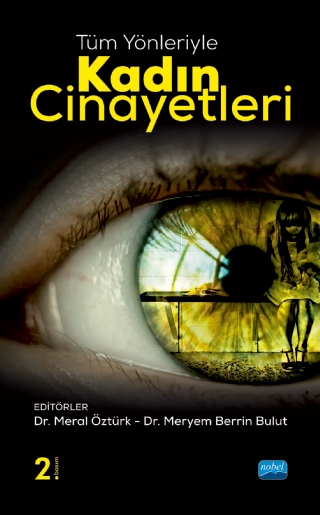
The book is a work that includes the scientific studies of academics from many different disciplines on femicide, and in this sense, it is the first study in its field in Turkey. In the book, femicide has been discussed from various aspects, and the subject has been tried to be examined from perspectives such as social work, sociology, psychology, forensic sciences and religious sciences. Of course, we are aware that it is difficult to explain a very important issue such as femicide in a book with all its aspects, but we have done this study hoping that this work will be a start in order to increase the number of studies in this direction.
The book is dedicated to all women in Turkey, whose names are unknown and who fell victim to male terror for various reasons, along with symbolic names such as Emine Yılmaz, Özgecan Aslan, Güldunya Ceremony and Ayşe Paşalı. We hope that this book will be useful to all people working in the field, especially decision makers, and thus contribute to the prevention of femicide.
The book is dedicated to all women in Turkey, whose names are unknown and who fell victim to male terror for various reasons, along with symbolic names such as Emine Yılmaz, Özgecan Aslan, Güldunya Ceremony and Ayşe Paşalı. We hope that this book will be useful to all people working in the field, especially decision makers, and thus contribute to the prevention of femicide.

Folk literature is a wide field of literature that is the product of common consciousness, and that enables societies to exhibit the will to live together due to this feature and makes its existence permanent. Expressing the universe and the world of thought of human beings who seek the secret of existence in the universe; Literary data, which are skillfully created in every field, from mythical narratives that tell the story of the unknown universe of humanity to individual pleasures and sufferings, are generally interpreted within the broad field called folk literature.
Within the concept of folk literature, there is a rich literary field ranging from the creation of the universe to the creation of beings, from the mythical narratives in which the stories of the transformation and formation of the existence are told, to the literary data produced by the collective consciousness in the time lived. Folk literature, which continues its existence in all areas of history and historical-cultural geography, from belief-based rhetoric to entertainment-centered data, from the caress words of infancy to the laments for the lost, on the one hand, is preserved and transferred in the individual memory, and on the other hand, it maintains its existence in the social memory. It also contributes to the gathering of Turkish society around a common identity.
Within the concept of folk literature, there is a rich literary field ranging from the creation of the universe to the creation of beings, from the mythical narratives in which the stories of the transformation and formation of the existence are told, to the literary data produced by the collective consciousness in the time lived. Folk literature, which continues its existence in all areas of history and historical-cultural geography, from belief-based rhetoric to entertainment-centered data, from the caress words of infancy to the laments for the lost, on the one hand, is preserved and transferred in the individual memory, and on the other hand, it maintains its existence in the social memory. It also contributes to the gathering of Turkish society around a common identity.

The stories, which are among the elements of oral culture, seen with different names, performers and performance styles in the wide geographical area where the Turkish society lives, were fictionalized with an "aesthetic" approach in the period they were created and lived, and were conveyed through words and writing; It is one of the literary genres that changed while being transferred and became the source of new literary creations. The width of the borders of the Turkish communities, which have been in constant and rapid movement since the first periods of history, and the lifestyle lived accordingly, caused the difference in the line of literary development. Despite this, the stories have been the common narratives of Turkish groups living in different parts of the Turkish geography. This book contains general information about the formation, development, performers, performance style and structure of folk storytelling, which is one of the cultural elements that form the common memory of Turkish society.

This book, in which we try to deal with Turkish History and Culture in a wide range from about 2500 BC to the beginning of the 20th century, is prepared for both undergraduate students and those who are interested in the subject and want to acquire basic information. . From the origin and first living areas of the Turks to the first state they established in history, from their meeting with Islam to the first Muslim Turkish states, from the Turkish presence in Anatolia to the Ottoman Empire that ruled three continents, the turning points of Turkish history and the state organization and cultural life of these political structures, the expert in the field. You will read from the pen of the teachers…

Traditional social, economic and cultural values in Turkish society are trying to catch up with the speed of the new world. The effort of neo-classical economics to transform social sciences into natural sciences causes the ties between economics, human and society to be broken. The greater dominance of the 'economic' over the 'social' increases the distances between the economy and society. Economic sociology, on the other hand, looks at economic events from a sociological perspective and takes multidisciplinary approaches instead of uniform approaches. Economic sociology both looks at individual parts and tries to understand and make sense of the whole.
Suggesting a standard economic system and policy for each country is a rather limited approach. So much so that trying to solve the economic problems of a country without understanding the people, society, culture and history is like writing on water. The fact that each country's economic problems are unique brings to mind the views of Hippocrates, the founder of medicine. Hippocrates says that each patient is special and that there can be no standard treatment. As in the famous aphorism "There is no disease, there is a patient". Economic sociology is also in an effort to understand people and society by moving from historical facts. At the same time, it aims to solve economic problems by seeing and knowing the reality of each country in terms of social and economic structures.
In this study, titled "Economic Sociology in Turkey", it is explained from the perspective of different economic sociologists how economic thought formed in Turkey in the historical process and what kind of effects moral values have on the economic structure. For this purpose, the views of different thinkers, from Ziya Gökalp to Sabri Ülgener, from Fahri Fındıkoğlu to Cavit Orhan Tütengil and from Mehmet Eröz to Amiran Kurtkan Bilgiseven, are presented as thinkers who directly or indirectly contribute to the sociology of economics in Turkey. At the same time, state-centered critical approaches to solving recent social and economic problems, culture-centered Weberian approaches investigating the effects of religious and moral approaches on economic processes, capital-centered critical approaches and new economic sociology approaches are explained. One of the most important ways to reduce the distances between economy and society is to be able to take a holistic view of the social and economic problems caused by rapid liberalization in Turkey since the 1990s.
Suggesting a standard economic system and policy for each country is a rather limited approach. So much so that trying to solve the economic problems of a country without understanding the people, society, culture and history is like writing on water. The fact that each country's economic problems are unique brings to mind the views of Hippocrates, the founder of medicine. Hippocrates says that each patient is special and that there can be no standard treatment. As in the famous aphorism "There is no disease, there is a patient". Economic sociology is also in an effort to understand people and society by moving from historical facts. At the same time, it aims to solve economic problems by seeing and knowing the reality of each country in terms of social and economic structures.
In this study, titled "Economic Sociology in Turkey", it is explained from the perspective of different economic sociologists how economic thought formed in Turkey in the historical process and what kind of effects moral values have on the economic structure. For this purpose, the views of different thinkers, from Ziya Gökalp to Sabri Ülgener, from Fahri Fındıkoğlu to Cavit Orhan Tütengil and from Mehmet Eröz to Amiran Kurtkan Bilgiseven, are presented as thinkers who directly or indirectly contribute to the sociology of economics in Turkey. At the same time, state-centered critical approaches to solving recent social and economic problems, culture-centered Weberian approaches investigating the effects of religious and moral approaches on economic processes, capital-centered critical approaches and new economic sociology approaches are explained. One of the most important ways to reduce the distances between economy and society is to be able to take a holistic view of the social and economic problems caused by rapid liberalization in Turkey since the 1990s.
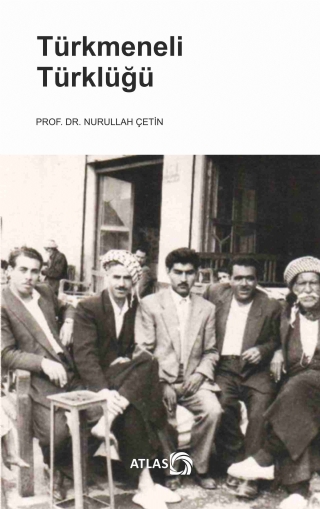
Iraq and Syria were formerly Turkish homelands. Iraqi and Syrian Turkmen are a continuation and relative of the Turks of Turkey. Turks in Turkmeneli, which is the name of the ancient Turkish homelands in Iraq and Syria today, are in danger of extinction under the persecution of ISIS and Barzani peshmerga. Today, Turkish villages and cities in Turkmeneli are evacuated and occupied by ISIS and the peshmerga. Turkey must protect the Iraqi and Syrian Turkmen in order to preserve its existence.

The private lives structured by television came to light in different ways in eastern and western societies. This study provides concrete examples to the change of private life by making collective and individual culture comparisons through marriage programs. The Comparison of Marriage Shows in Two Cultures seeks to examine the complicated and often polemical terrain of marriage programs while considering their effects on the perceptions of privacy in two different societies: The United States of America and Turkey, in regards to two reality TV marriage shows: The Bachelor and Esra Erol`da Evlen Benimle.
Nowadays privacy is a commodity, property, and according to modern law one can do whatever one wants with it: some choose to sell it, or perhaps otherwise, to acquire an identity is impossible; it is that simple but its structure, content, borders and expression differ according to the impositions of western and eastern cultures.
Nowadays privacy is a commodity, property, and according to modern law one can do whatever one wants with it: some choose to sell it, or perhaps otherwise, to acquire an identity is impossible; it is that simple but its structure, content, borders and expression differ according to the impositions of western and eastern cultures.
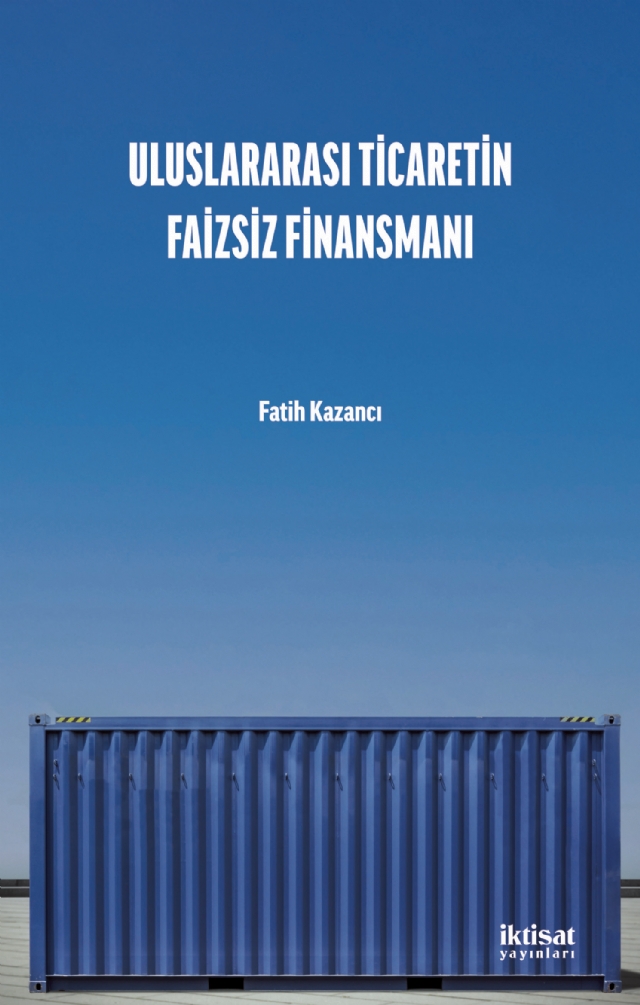
When we look at the world in general, not only conventional banks but also interest-free banks finance international (foreign) trade. Conventional banks can finance all kinds of legal goods or services with interest. Interest-free banks, on the other hand, can only mediate for goods that are halal to trade while financing international trade, and they can provide financing to international traders only with interest-free financing products. This book in your hand focuses on various interest-free financing products of interest-free banks and which interest-free financing products can support international traders. Thanks to this book, the reader will have the opportunity to learn about the development of international trade in our nearby geography, to get to know the interest-free institutions that support international trade, the types of contracts used in interest-free financing, and the current interest-free international trade finance products that have applications around the world.
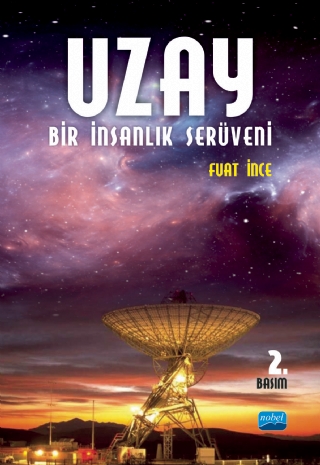
How was the universe born? How did it evolve? What is a neutron star? What is a black hole? What is dark matter? What is dark energy? What kind of end awaits the universe?
Why is a week 7 days? How was the diameter of the Earth measured in ancient times? What were the contributions of Islamic scientists to astronomy? What mistakes did Einstein make besides his great discoveries?
What can satellites do and not do? Can satellites see inside our house? Can he listen to us? How do satellites help us find addresses?
What is space law? What are space policies? What does space wars mean? What's the trend? What did Turkey do about space, what could not?
Space has always been and will continue to be a subject that has occupied humanity since time immemorial. Although books have been written on the subject of space in many languages, there is no book that covers the history of space sciences, today's space technologies, law and politics under a single cover, neither in Turkish nor in a foreign language. In an area where superstitions roam, this book; It explains scientific, technological and political developments in a language that everyone can understand.
Why is a week 7 days? How was the diameter of the Earth measured in ancient times? What were the contributions of Islamic scientists to astronomy? What mistakes did Einstein make besides his great discoveries?
What can satellites do and not do? Can satellites see inside our house? Can he listen to us? How do satellites help us find addresses?
What is space law? What are space policies? What does space wars mean? What's the trend? What did Turkey do about space, what could not?
Space has always been and will continue to be a subject that has occupied humanity since time immemorial. Although books have been written on the subject of space in many languages, there is no book that covers the history of space sciences, today's space technologies, law and politics under a single cover, neither in Turkish nor in a foreign language. In an area where superstitions roam, this book; It explains scientific, technological and political developments in a language that everyone can understand.
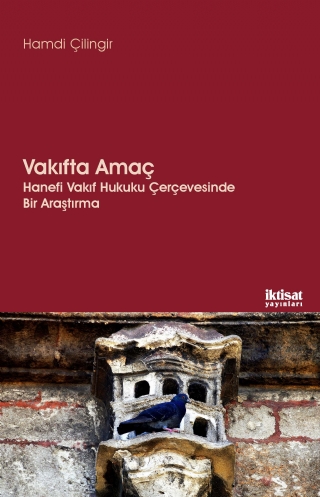
The foundation is a very important institution that takes its essence from the understanding of charity and infaq in Islam, has developed and enriched with the experiences of Muslims in the historical process, and covers almost all areas of life with the purposes it serves. Islam, on the one hand, obliges Muslims to perform obligatory sadaqah (sadaka-i vâcibe) such as zakat, alms, and tithe, on the other hand, encourages them to do voluntary sadaqah (sadaka-i nafilah). Among these futile types of charity, the foundation has followed a very important development course in history in terms of institutionalism, prevalence and the purposes it serves. The freedom of the person who established a foundation to set a purpose for his foundation has revealed a wide variety of purposes in foundations over time. Indeed, this diversity of aims has been well documented and demonstrated in historical studies.
This book approaches the issue of purpose in the foundation from a different perspective, deals with the issue in a legal framework and tries to draw a theoretical framework for the purpose of the foundation.
This book approaches the issue of purpose in the foundation from a different perspective, deals with the issue in a legal framework and tries to draw a theoretical framework for the purpose of the foundation.
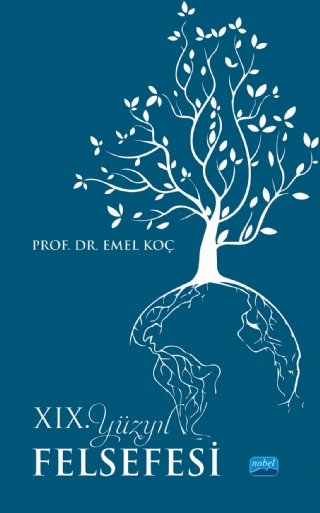
XIX. century; XX. It is a period in which the foundations of many philosophical movements of the 20th century were laid, and the history of philosophy was as "productive" as it was "intensive" in the intellectual sense. XIX. The intellectual life of the twentieth century is more complex and intense than at any previous period in the history of philosophy. It can be said that the intellectual complexity and intensity of the century is due to the existence of different factors that feed and shape the intellectual environment. XIX. Among the main sources feeding the philosophy of the XVI century. scientific developments since the century; technological developments shaped accordingly and completely changing the living standard of people; The beginning of the Industrial Revolution, which changed Western people from head to toe with scientific and technological developments, and the XVIII. The American and French Revolutions, which were influenced by the Enlightenment Age thinkers of the 20th century, and the striking political events in European and world history brought about by the Revolutions can be counted. XIX. The commemoration of the 19th century with the emphasis on different qualities such as the "Century of History", "The Century of Natural Sciences", "The Century of Techniques and Inventions", and "The Age of Ideology" reflects the productivity of the century and its scientific, technological, political and social development and transformation.
XIX. In this work named Philosophy of the Century; On the one hand, philosophers such as GWF Hegel, KH Marx, A. Comte, J. Bentham, SA Kierkegaard, F. Nietzsche who reflected the spirit of the period and reflected the spirit of a period with such intellectual richness and complexity, and on the other hand, there are not enough academicians in our country yet. neglected philosophers such as FH Bradley and J. Royce, for whom the study is not available, are included.
XIX. In this work named Philosophy of the Century; On the one hand, philosophers such as GWF Hegel, KH Marx, A. Comte, J. Bentham, SA Kierkegaard, F. Nietzsche who reflected the spirit of the period and reflected the spirit of a period with such intellectual richness and complexity, and on the other hand, there are not enough academicians in our country yet. neglected philosophers such as FH Bradley and J. Royce, for whom the study is not available, are included.
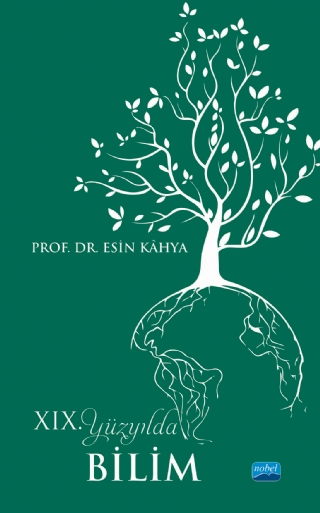
In general, the nineteenth century is a period of political, economic, social and cultural restructuring all over the world. It is possible to determine this change not only in political life, but also in social structuring, various branches of art, philosophy and science.
In this period, the steps taken in different branches of science, such as mathematics (calculation of probability, etc.), astronomy (finding new planets and studies on the universe system, etc.), physics (electricity and mechanics, etc.), chemistry (atomic theory, organic and inorganic chemistry). studies), developments in biology (the theory of evolution and heredity, cell research, etc.) and developments in medicine (microbiology, pathology, developments in physiology, etc.) have determined the scientific problematic of the twentieth and twenty-first centuries. Today, we continue to build our scientific structure on the foundations laid at that time.
In this period, the steps taken in different branches of science, such as mathematics (calculation of probability, etc.), astronomy (finding new planets and studies on the universe system, etc.), physics (electricity and mechanics, etc.), chemistry (atomic theory, organic and inorganic chemistry). studies), developments in biology (the theory of evolution and heredity, cell research, etc.) and developments in medicine (microbiology, pathology, developments in physiology, etc.) have determined the scientific problematic of the twentieth and twenty-first centuries. Today, we continue to build our scientific structure on the foundations laid at that time.
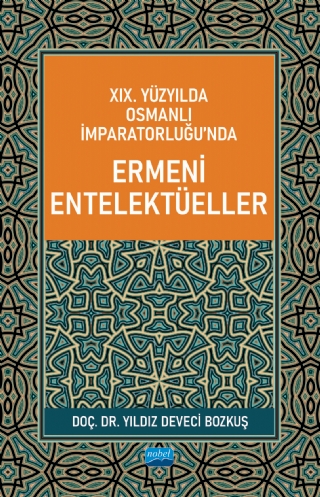
…What I especially appreciate is that in the context in question, as has been done many times, we speak of the Ottoman Empire and the Armenian -whether explicitly, implicitly or indirectly- as separate or even contradictory elements, which are added to each other in the most reasonable assumption but cannot come into contact with each other sincerely. was not done. Therefore, your book fills a void. I would like to express my appreciation and congratulations for this important service and contribution to the Ottoman-Armenian common intellectual history, and I sincerely hope that your work will reach as wide a readership as possible...
prof. Dr. Boghos Levon Zekiyan
The majority of the studies on Armenians, whose experience of living together with the Turks is long, has been transformed into a field conceptualized as the Armenian Question. Therefore, Ottoman subjects of Armenian origin have been the subject of very little research outside the areas of conflict. Yıldız Deveci Bozkuş focused on a neglected phenomenon with her work. The emergence of the modern intellectual class is related to the formation of the appropriate atmosphere. The Ottoman intellectual class was also born with the formation of a suitable atmosphere with its own peculiarities. Intellectuals of Armenian origin also breathed in the same atmosphere. It can even be said that the emergence of Armenian intellectuals, rather than the intellectual development in the West, although they established a printing press centuries before the Turks, was mainly the result of the processes experienced in the Ottoman capital. In this sense, it would not be right to separate the intellectual world from the emergence and development of Ottoman-Turkish intellectuals. In this process, intellectuals of Armenian origin contributed to Turkish cultural life, which we can see as logistic support. These contributions are mostly dictionaries, music, art, etc. will appear in the fields. Yıldız Deveci Bozkuş, with her research on the people she dealt with and her works, has taken this contribution from the level of discourse to the level that can be supported by facts, while also showing that different doors can be opened for research on Armenians.
prof. Dr. Ahmet Ozcan
This work of Yıldız Deveci Bozkuş is very important as it shows that a study on Ottoman Armenians can go far beyond the narrow frame of the 1915 events. With this comprehensive study, Bozkuş reveals the contributions of the Ottoman Armenians to the Ottoman culture and science world, and also shows that this community is an inseparable part of the Ottoman society. Compressing centuries-old intricate inter-communal relations into a few years of political/military conflict is one of the greatest weaknesses of the Armenian studies literature in Turkey. For this reason, it would not be wrong to say that this work fills an important gap in the literature.
Assoc. Dr. Mustafa Serdar Palabiyik
prof. Dr. Boghos Levon Zekiyan
The majority of the studies on Armenians, whose experience of living together with the Turks is long, has been transformed into a field conceptualized as the Armenian Question. Therefore, Ottoman subjects of Armenian origin have been the subject of very little research outside the areas of conflict. Yıldız Deveci Bozkuş focused on a neglected phenomenon with her work. The emergence of the modern intellectual class is related to the formation of the appropriate atmosphere. The Ottoman intellectual class was also born with the formation of a suitable atmosphere with its own peculiarities. Intellectuals of Armenian origin also breathed in the same atmosphere. It can even be said that the emergence of Armenian intellectuals, rather than the intellectual development in the West, although they established a printing press centuries before the Turks, was mainly the result of the processes experienced in the Ottoman capital. In this sense, it would not be right to separate the intellectual world from the emergence and development of Ottoman-Turkish intellectuals. In this process, intellectuals of Armenian origin contributed to Turkish cultural life, which we can see as logistic support. These contributions are mostly dictionaries, music, art, etc. will appear in the fields. Yıldız Deveci Bozkuş, with her research on the people she dealt with and her works, has taken this contribution from the level of discourse to the level that can be supported by facts, while also showing that different doors can be opened for research on Armenians.
prof. Dr. Ahmet Ozcan
This work of Yıldız Deveci Bozkuş is very important as it shows that a study on Ottoman Armenians can go far beyond the narrow frame of the 1915 events. With this comprehensive study, Bozkuş reveals the contributions of the Ottoman Armenians to the Ottoman culture and science world, and also shows that this community is an inseparable part of the Ottoman society. Compressing centuries-old intricate inter-communal relations into a few years of political/military conflict is one of the greatest weaknesses of the Armenian studies literature in Turkey. For this reason, it would not be wrong to say that this work fills an important gap in the literature.
Assoc. Dr. Mustafa Serdar Palabiyik
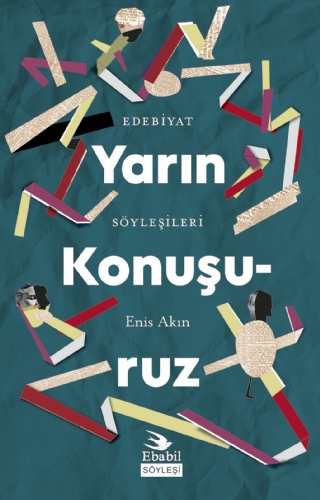
Saying "we'll talk tomorrow" is a variant of saying "we can't talk today"; tomorrow is utopia, there is no tomorrow.
On these pages, there are conversations with poets and writers who do not postpone saying "We'll talk tomorrow" but say "Let's talk today".
We talked with Ece Ayhan, İlhan Berk, Hüseyin Cöntürk, little İskender, Ahmet Oktay, İsmet Özel, Necmiye Alpay, Orhan Koçak, Murat Belge and Güven Turan about uncertainties such as poetry, literature, poets, Turkey, recent past.
Maybe you take a sentence you read here and put it in your pocket, maybe you fold it and put it aside in your memory, but maybe it will come to your mind somewhere one day and it will have a delayed effect.
What is literature but a delayed effect?
On these pages, there are conversations with poets and writers who do not postpone saying "We'll talk tomorrow" but say "Let's talk today".
We talked with Ece Ayhan, İlhan Berk, Hüseyin Cöntürk, little İskender, Ahmet Oktay, İsmet Özel, Necmiye Alpay, Orhan Koçak, Murat Belge and Güven Turan about uncertainties such as poetry, literature, poets, Turkey, recent past.
Maybe you take a sentence you read here and put it in your pocket, maybe you fold it and put it aside in your memory, but maybe it will come to your mind somewhere one day and it will have a delayed effect.
What is literature but a delayed effect?
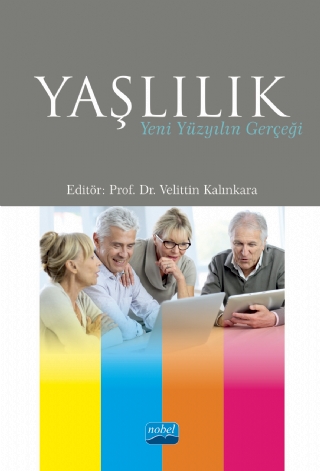
In the twenty-first century, demographic change is taking place that has never happened in world history, and no country is outside this scope. While increasing life expectancy and lowering birth rates are considered great achievements in modern science and health care, their significant impact on future generations is underrated. No matter how long we live, it becomes necessary for every country to rethink and restructure its social and economic institutions in order to ensure the well-being of individuals when working life ends. The aging of societies can affect economic growth and the sustainability of families, the ability of states and societies to provide resources for older people, and many other issues, including international relations. Despite scientific evidence, the importance and global implications of population aging are not yet fully understood. There is a need to raise awareness not only of global aging issues, but also of the importance of rigorous international scientific research and policy dialogue to help us respond to the challenges and opportunities of an aging world.
This book paints a picture of the impact of the aging population on the economy, society, family and environment. We hope this book, consisting of twenty chapters and contributed by 32 authors, will encourage you to identify the best ways to address dialogue, international studies, and the universal human experience about work, economics, family, communication, landscaping, and behavioral issues. We believe that scientists and every member of the society will be inspired by these suggestions and experiences in planning our own future, the aging and aging policies of the world societies and our country.
This book paints a picture of the impact of the aging population on the economy, society, family and environment. We hope this book, consisting of twenty chapters and contributed by 32 authors, will encourage you to identify the best ways to address dialogue, international studies, and the universal human experience about work, economics, family, communication, landscaping, and behavioral issues. We believe that scientists and every member of the society will be inspired by these suggestions and experiences in planning our own future, the aging and aging policies of the world societies and our country.

The concept of "New Turkish Literature", which we can start with the Tanzimat Literature and bring it to the present day, meets a period of more than 150 years in which many innovations and formations have emerged in our literature. This work is in the Departments of Turkish Language and Literature in Education Faculties, Turkish and Social Sciences Education Departments, and New Turkish Literature I-II, Contemporary Turkish Literature, Republican Period Turkish Literature and Literature Departments in Turkish Education Department. New Turkish Literature I-VI etc. taught. Prepared for classes. In the book prepared by a staff of young academicians engaged in academic studies in the field of New Turkish Literature; The periods called Tanzimat Literature, Intermediate Generation Literature, Servet-i Fünûn Literature, Fecr-i Âti Literature, National Literature, Republican Period Turkish Literature and Post-1980 Turkish Literature were discussed in detail around genres such as novel, story, poetry, theater and criticism. taken. In the book, in which the political, social and cultural structures of the periods are evaluated, the literary understandings of the relevant periods are given with their general characteristics, the artists of the period, their contributions to their periods, the list of their works, their place and importance in Turkish Literature, and the development of New Turkish Literature from the Tanzimat to the present. tried to show the course. We hope that the book prepared for university students and those who are interested in our modern literature will be useful to those who are interested.
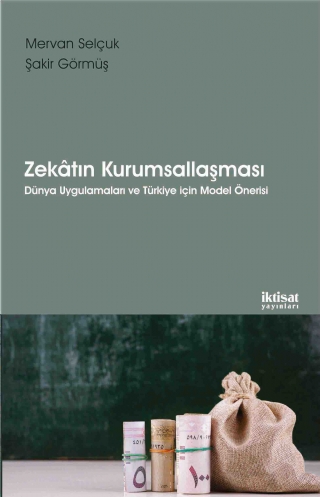
The connection of Muslims with zakat has decreased day by day and has almost reached the breaking point. It is seen that there is a decrease in the number of people who calculate zakat in accordance with its originality and deliver it to those who deserve it. While the zakat potential of Islamic countries can easily eliminate the problems of income distribution and poverty, the insufficient institutionalization of zakat causes many socio-economic problems and an inability to effectively combat existing problems. Hz. Although it cannot be collected and distributed under the authority of the state and forcibly, as in the Sunnah of the Prophet (pbuh), it is seen that zakat is tried to be implemented in an institutional structure with state support in countries such as Malaysia, Indonesia and Pakistan. In this study, information about the countries where zakat is applied in an institutional structure is given and these zakat institutions are examined comparatively. In the light of this information, taking into account the existing legal and institutional structures, a model has been created for a modernly applicable zakat institution in Turkey.